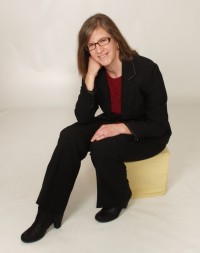I sit in a shady spot on the grass by a lake, with a pen and a notebook. There’s warm air, a cool breeze, and blue skies with pretty white clouds. A kite is in the air off to the left, people are fishing off a dock to the right, and a sailboat is moored straight ahead. My thoughts flow quietly.
Our eldest son is now 18. He is a legal adult. He can vote. He can sign his own forms. He’ll be going to college in the fall, making his own academic choices, making his own food choices (not that he has no say in that matter now, but I do the grocery shopping, which at least determines what choices are in the house). He’ll be making all sorts of decisions, meeting new people, trying new things, learning new subjects (or old subjects at new levels).
Our son of course has been developing into the person that he is for the past 18 years. Nothing magical happened on that day which marked the 18th anniversary of his birth. He was the same person on the day of his birthday that he was the day before (and largely the same as the year before). But this particular birthday hit me strangely. While there is no magic in numbers, there is significance.
In our society, at 18 a person is given different rights and responsibilities than he or she had before. And some of this affects me. I can no longer call my son’s doctor to discuss his health unless my son signs a paper giving me permission to do so. In actuality, it’s been years since I’ve discussed anything with my son’s doctor that I haven’t discussed with my son. And although I’ve accompanied him to check-ups, I’ve also told my son for years that even though he can always discuss any medical concerns with me, that he can also discuss anything he’d like with his doctor privately. But now this privacy has legal protection. Which makes me feel….. different. Not bad. Just different. And much to my surprise, considering my general dislike of losing control, the situation feels completely appropriate.
My professional training and experience helped shape my perspective. Internists specialize in adult medicine, which technically encompasses from adolescent through geriatric age range. But any time I saw a patient at the youngest end of this spectrum, about 16 years old, I felt a tinge of discomfort, that caring medically for this person should be done by a pediatrician. That there was still, even when the person had obviously gone through puberty, something in the overall gestalt that said “child.” I never felt that way with an 18- or 19-year-old, even when that 18 or 19-year-old was less mature than some 15-year-olds that I knew. One was simply an immature adult or a mature child.
It is interesting that the number value of the Hebrew letters that spell the word for “life” (“chai”) equals 18. In our modern culture, 18 is the beginning of adult life. We have a fledgling adult body, although our brains are still undergoing significant and rapid change and development through our mid-20s.
So as our son embarks upon his adult journey, my husband and I will continue to be here for him. And he will be here for us. The supporter/teacher/advisor role still is heavily my husband’s and mine, while our son generally still assumes the student/advisee role. But not in all areas. Over the next decades, the balance will become more even overall, with each of us attaining and maintaining our individual areas of expertise and authority, and in many ways the balance will flip.
My and my husband’s lives as parents began 18 years ago. We are now the fledgling parents of an adult (although we maintain our more seasoned status as parents of teens).
A fish splashes a few feet from the shore. I watch as one jet trail crosses another in the sky above the lake, as two sailboats pass each other in front of me. The sound of children wafts over from a playground in the distance, punctuated by the occasional cry of a nearby gull. A powerboat passes a couple of canoes as a kayak cuts through the powerboat’s wake. I pick a white dandelion and blow on it, watching as the seeds float up and out on the breeze.
18. Life.
